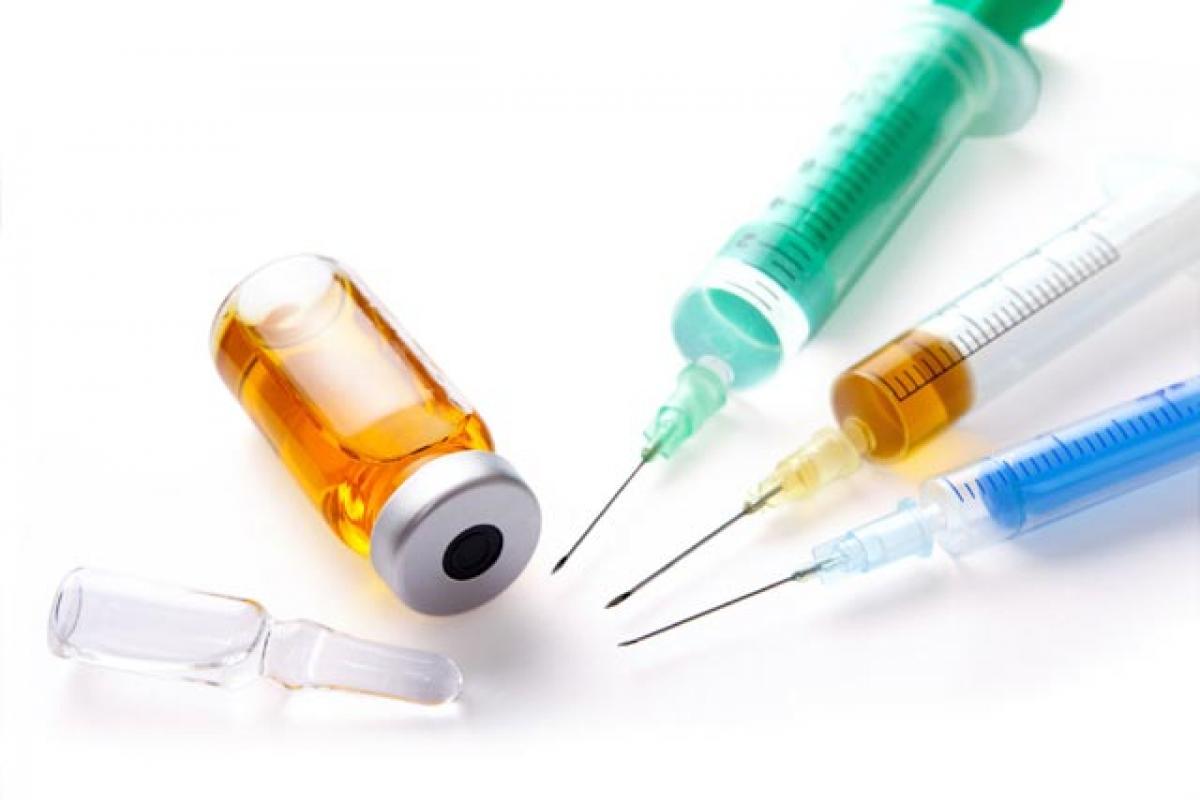Live
- Three persons admitted to hospital for diarrhea treatment
- First Star Outside Milky Way Captured: WOH G64 is 2,000 Times Larger Than the Sun
- Sikkim govt to constitute state Niti Ayog: CM Tamang
- CBI books Rajasthan narcotics inspector for Rs 3 lakh bribe
- Rajasthan bypolls: A tough contest between BJP and Congress
- Albania joins SEPA, paving way for EU integration
- Japanese government approves 250-billion USD economic package to ease price pain
- Six pharma companies to set up their units in Telangana
- The Unstable Events of a 17-Wicket Day in Perth: India vs Australia
- Dutch FM's Israel trip cancelled after Netanyahu's arrest warrant
Just In

Injections are the most common medical procedure in the world, so it is indeed a public health crisis when they are harmful. Every year, in India, 3-6 billion injections are given. Of these, 62.9 per cent are injected in an unsafe manner.
Injections are the most common medical procedure in the world, so it is indeed a public health crisis when they are harmful. Every year, in India, 3-6 billion injections are given. Of these, 62.9 per cent are injected in an unsafe manner.
This is mainly because doctors are in short supply in most rural areas in our country, and people depend on rural/regional medical practitioners, who are not doctors, but may have helped out at a hospital. In general almost half of our population that walks out of a health facility has had an injection, no matter what the symptoms.
This high usage and the fact that syringes are often reused, makes us particularly vulnerable to blood-borne infections such as HIV, hepatitis B virus (HBV) and hepatitis C virus (HCV). Of all the injections given in India, many carry the risk of transmitting blood-borne viruses.
Dr PBSS Raju, consultant gatroenterologist and Hepatlogist says, We should be worried An estimated 1.6 million HIV, 4.7 million hepatitis C virus (HCV) and 16 million hepatitis B virus (HBV) infections can be attributed to poor needle practices reusing needles, disposing them incorrectly, poor sterilization and incorrect usage. The trio is called ‘silent killers’ as infection may not produce any symptoms for months or even years and it is often too late when disease is discovered.
Most people know of the dangers that HIV poses, thanks to huge public health awareness campaigns. A few may also know about hepatitis B, the virus transmitted through the blood and other body fluids, much like HIV. However, very few know of hepatitis C.
The problem with that is that while the Hepatitis B virus (along with hepatitis A) has a vaccine available to prevent it, the Hepatitis C virus doesn’t. Worse, hepatitis C is asymptomatic for years (there are no obvious symptoms) and it usually reveals itself very late through more obvious symptoms (blood vomit, black stool, water in the abdomen etc) when the liver is damaged irreversibly.
The consequences
Hepatitis C spreads in other ways too, since it is a blood-borne disease: through unsterile surgical equipment, through blood used in blood transfusions that has not been screened, through sex, sharing infected needles in the case of drug addicts, sharing razors, even through tattooing, beauty parlour treatments like manicures and pedicures that may leave cuts.
It is, in a true sense a silent killer, as about 80 per cent may not exhibit any symptom for upto 20-25 years. About 50-70 per cent of adults who get this infection, will get chronic hepatitis C, which occurs over a long period. Of these, 55-85 per cent develop liver cirrhosis (scarring). Thereafter, 3-5 per cent will get liver cancer or their livers will fail, leading to death, unless they get a liver transplant. Approximately 5,00,000 people die each year from hepatitis C-related liver diseases.
The solution
Getting tested with a simple blood test is necessary. Ideally, everyone should, because there’s no knowing when you could have contacted it . If you can’t, then at least those at high risk (health care professionals) must get tested. These also include those who have had operations in the last 25 years (even dental procedures), those who have had blood transfusions (prior to 2002, when testing for it became a legal requirement for blood banks), people who have had a number of sexual partners, and those under the HIV scanner.
Today, HCV has a reliable, easy, reasonably inexpensive cure compared to even a year ago, and cure rates can be nearly 100 per cent if the virus is detected early and it hasn’t damaged the liver. This is why doctors want people to come in to get themselves screened.

© 2024 Hyderabad Media House Limited/The Hans India. All rights reserved. Powered by hocalwire.com







